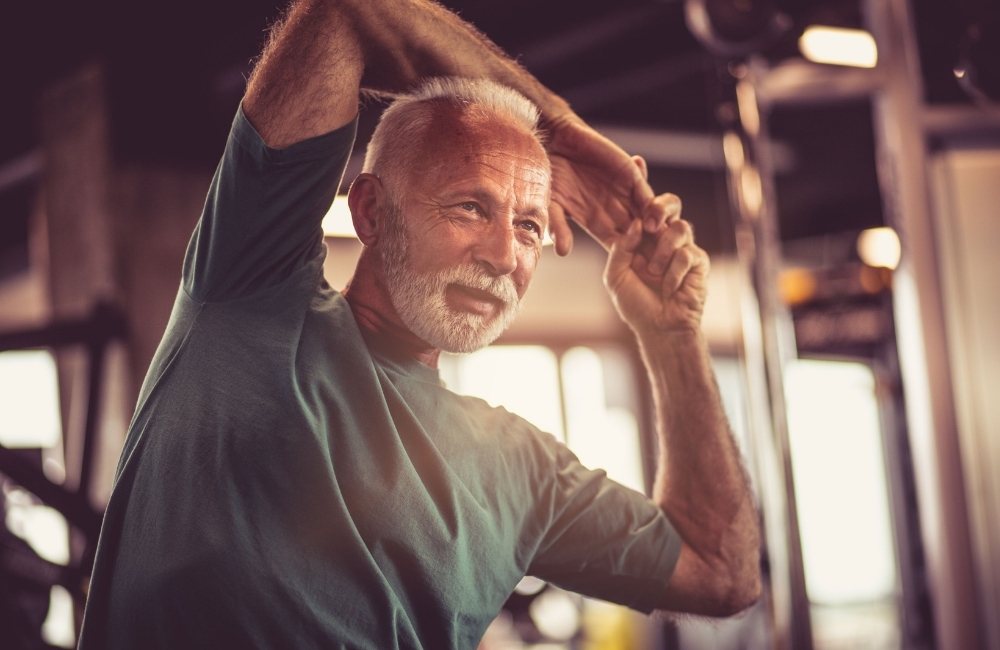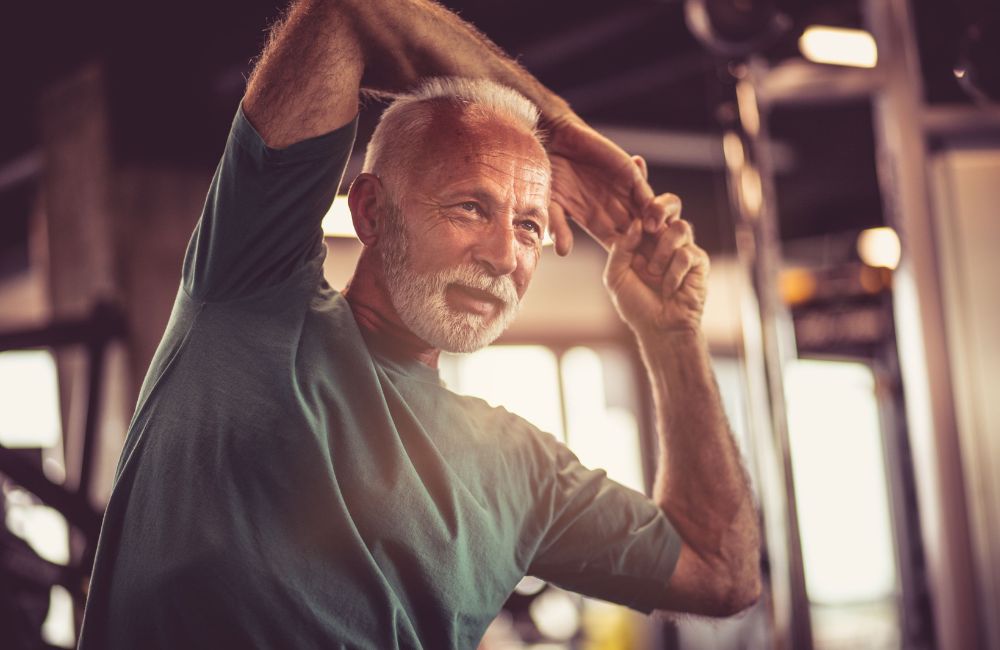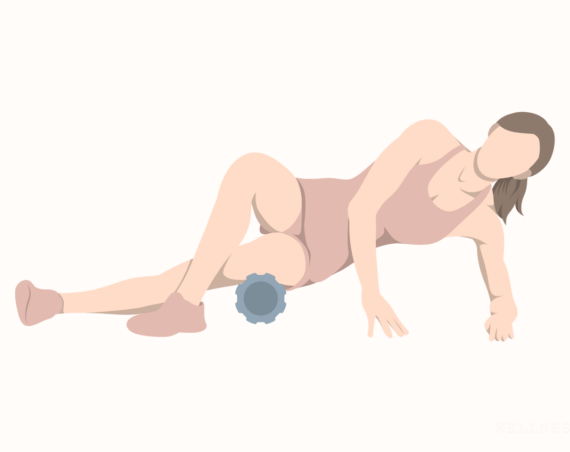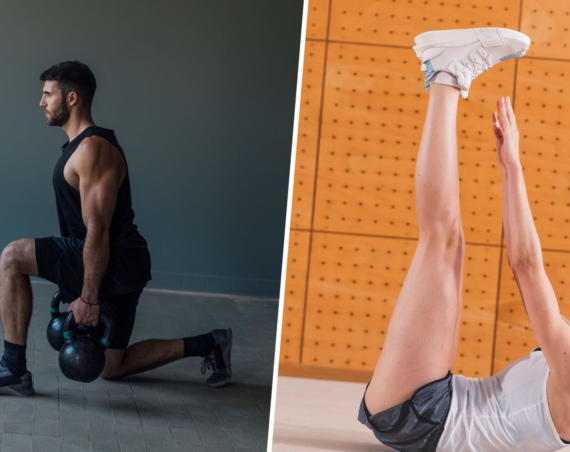
Over 60? Perform these exercises to improve your overall health and fitness. Working out is one of the keys to keeping your body strong, healthy, and independent as you grow older, studies shows.
Despite what many influencers and health gurus would have you believe, there is no magical pill or exercise that will cure all ailments.
Rather, by simply getting up and moving a little bit every day, you can access the health benefits inherent in exercise.
The following exercise suggestions are just that: suggestions. You don’t have to perform all of these exercise types every day.
In fact, you may start by just performing one of the following modes a few times a week, building up from there.
The most important thing is that you find a way to get some movement in every day. This will improve your physical, mental, and emotional health in tons of different ways.
Now, without further ado, let’s take a look at the top 5 exercises for seniors!
The 5 Best Exercises for Seniors

You’ll also like:
The 3 Best Exercises That’ll Reinvent Your Body in Your 60s and Beyond
A PT Shares the 7 Stretches He Does Every Day To Keep His Body ‘Young and Healthy’
1. Aquatic Exercise
By swimming, or even simply walking/exercising in the water, you’ll effectively decompress your joints. In doing so, you’ll be better able to achieve a full, pain-free range of motion.
Furthermore, water provides resistance in every direction, making it easy to work tons of different muscles at the same time. By simply treading water for a few minutes, you’ll burn loads of calories while working nearly every muscle in your body.
2. Yoga
Those who are truly passionate about yoga see it as more of a lifestyle than an exercise mode. However, you don’t have to buy loose-fitting clothes and give up all of your worldly possessions to reap the benefits of yoga.
Instead, you can simply attend yoga classes (virtually or in person) a few times a week.
There are tons of different types of yoga, enabling you to investigate which school will work best for you.
Whichever one you prefer, by participating in yoga, you can expect to notice significant improvements in your mental and physical health. Namaste!
3. Resistance Training
After hearing the term resistance training, many people immediately think of classic bodybuilders such as Arnold Schwarzenegger or Ronnie Coleman. But resistance training can benefit everyone: from massive powerlifters to 90-year-olds who are just trying to stay in shape.
Granted, you will achieve different benefits depending on whether you pursue a bulking program with heavy weights or a “toning” program with lighter weights.
No matter which type of resistance exercise you perform, however, you’ll enjoy the benefits of improved muscular strength, increased bone density, and plenty of other positive health effects.
4. Walking or Running
The human body was designed for walking and running. Even if you just perform short 20-minute walks every day, it’s imperative that you accrue some walking mileage every week.
There is some debate in the fitness and health community about whether treadmill walking affords the same benefits as walking on the ground.
In the end, as long as you’re walking in some way, shape, or form; you’re going to get some cardiovascular and muscular endurance benefits from walking.
Also, for those that want to really get their hearts pumping; running is a great option as well. Running and walking are similar in their benefits, but running obviously enables you to cover more distance in a shorter amount of time, increasing your exercise efficiency.
5. Core and Pelvic Floor Exercise
Last, but not least, we need to discuss core and pelvic floor strength.
In recent years, much medical research has been performed to investigate the role of the pelvic floor on health. It appears that those with better control over their pelvic floor muscles demonstrate better reproductive health, as well as better health overall.
Similarly, those with strong, stable cores are better able to withstand the demands of the world. The “core” is a loosely defined concept.
However, the core generally includes muscles such as the rectus abdominis, obliques, transversus abdominis, and various muscles in the hips and back.
Core and pelvic floor training can be very simple, especially when you’re just getting started. For instance, you can even perform Kegel exercises and postural stability exercises while sitting in your chair right now! Check out these core exercises for seniors.
Conclusion
Exercise can seem complicated and intimidating. However, we should all let go of our preconceived notions about there being a “best” form of exercise. Instead, we should find a form of exercise that we like, and stick with it.
Overtime, we may decide to add more variety and types of movement to our routines. But in the meantime, the most important thing is to get up and move!
Works Cited
- Ochoa, J., Sternad, D., & Hogan, N. (2017). Treadmill vs. overground walking: different response to physical interaction. Journal of neurophysiology, 118(4), 2089–2102. https://doi.org/10.1152/jn.00176.2017
- Kim, K. H., Lee, B. A., & Oh, D. J. (2018). Effects of aquatic exercise on health-related physical fitness, blood fat, and immune functions of children with disabilities. Journal of exercise rehabilitation, 14(2), 289–293. https://doi.org/10.12965/jer.1836068.034
- Hong, A. R., & Kim, S. W. (2018). Effects of Resistance Exercise on Bone Health. Endocrinology and metabolism (Seoul, Korea), 33(4), 435–444. https://doi.org/10.3803/EnM.2018.33.4.435
- Cho, S. T., & Kim, K. H. (2021). Pelvic floor muscle exercise and training for coping with urinary incontinence. Journal of exercise rehabilitation, 17(6), 379–387. https://doi.org/10.12965/jer.2142666.333


